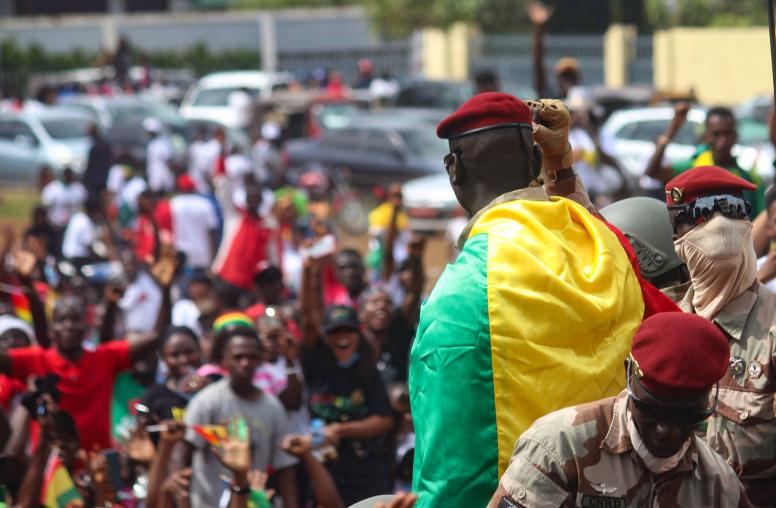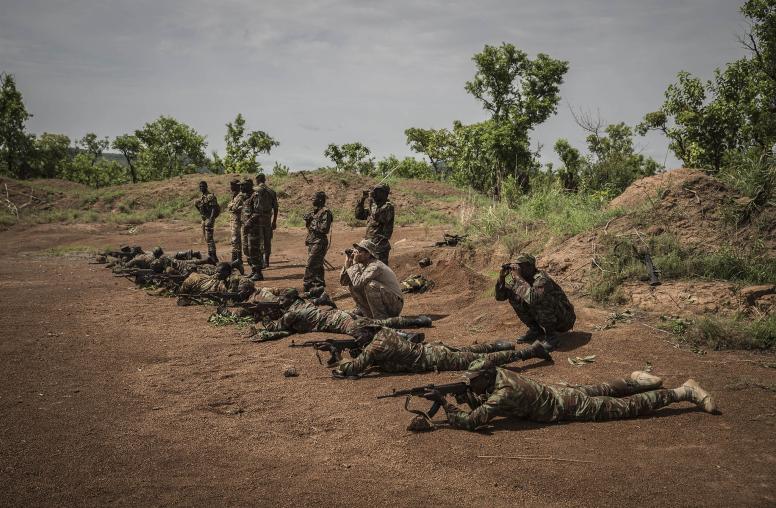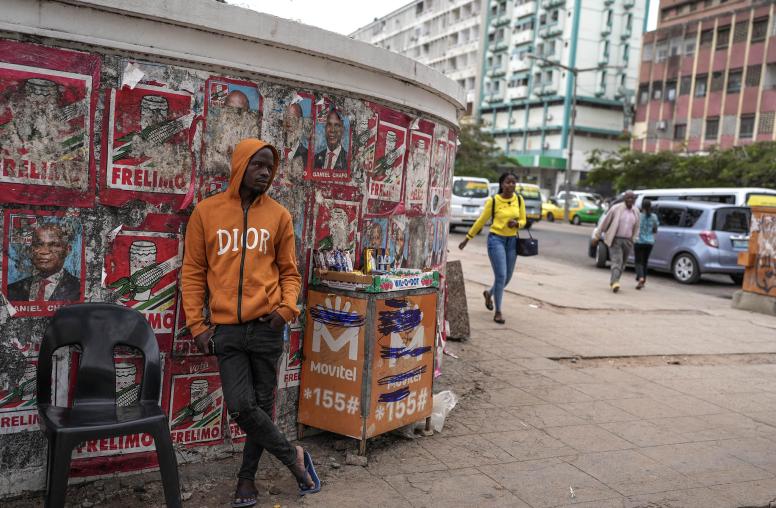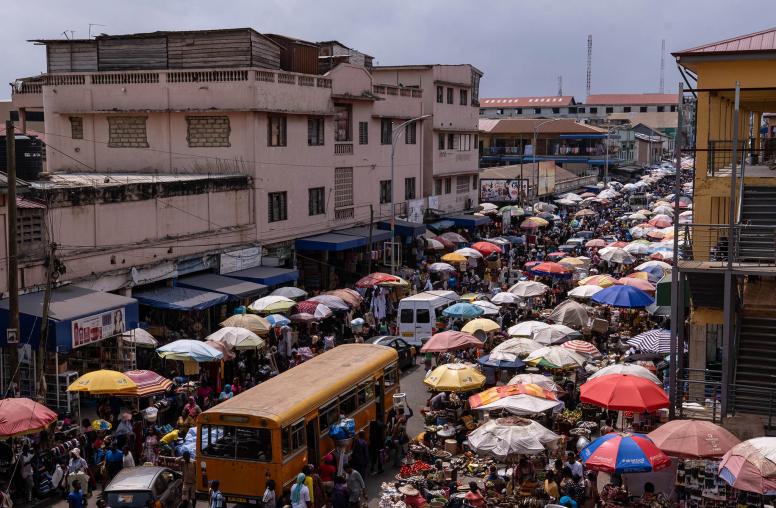Research & Analysis
U.S. Institute of Peace’s articles, reports, tools and other features provide policy analysis, research findings, and practitioner guides. These publications examine critical conflict issues at the center of the Institute’s work to prevent and resolve violent conflict.
The views expressed in these publications are those of the author(s).

What the DRC-Rwanda Peace Deal Means for the U.S. and Africa’s Mineral-Rich Great Lakes Region
Last Friday, the foreign ministers of Rwanda and the Democratic Republic of the Congo (DRC) met in Washington to sign an agreement to end 30 years of conflict in Africa’s Great Lakes region. The peace deal was accompanied by commitments to build a “regional economic integration framework” and promises of U.S. investment in eastern DRC’s abundant critical mineral reserves, among other commercial agreements.

How Chinese Mining Is Enabling the Guinean Junta’s Power Grab
Once seen as a promising democracy in West Africa, Guinea has been mired in political turmoil in recent years — especially in the wake of the country’s 2021 military coup. After initially promising a smooth transition to democracy, the ruling junta led by Colonel Mamady Doumbouya has repeatedly postponed key milestones, cracked down on opposition, restricted media and committed a number of human rights violations.

Border Security Training Program (BSTP)
USIP’s Border Security Training Program (BSTP) trains police officers from Kenya’s Border Police Unit (BPU) and General Service Unit (GSU) who are serving on al-Shabaab’s major transit corridor along the Kenya-Somalia border. The program, which began in 2017, is implemented in partnership with the U.S. Department of State’s Bureau of Counterterrorism and equips Kenyan police with the skills to better understand the civilian environment and cultivate relationships in order to more effectively achieve their mission and counter terrorist activity.

Joseph Sany on the Rwanda-DRC Conflict and the Risk of Regional War
After decades of poor governance, ethnic tensions and illegal resource exploitation in the mineral-rich eastern Democratic Republic of the Congo, Rwandan-backed rebels’ capture of Goma “has the potential to bring … seven countries into [the] conflict” and ignite a wider regional war, says USIP’s Joseph Sany.

A Wake-up Call for West Africa: Addressing the Region’s Rising Violent Extremism
On January 8, the al-Qaida affiliated group Jama'at Nusrat al-Islam wal-Muslimin (JNIM) launched a meticulously planned assault on a fortified military post in northern Benin’s Alibori region, near the country’s borders with Burkina Faso and Niger. The attack claimed the lives of 28 soldiers, injured dozens more and sent shockwaves through a region long considered a fragile but reliable buffer against the violence of the nearby Sahel.

A DRC-Rwanda Truce is Key for African and U.S. Interests — Here’s How to Get There
On January 27, Rwandan-backed rebels known as M23 captured Goma, the largest city in eastern Democratic Republic of Congo (DRC), despite the presence of U.N. peacekeeping force, defense forces from other African countries, local militias, and European mercenaries hired to block its advance. Nearly 3,000 people were killed in M23’s advance into Goma, including the provincial military governor. Roughly 500,000 people fled their homes, adding to the more than two million people displaced by the long-standing conflict.

In Nigeria’s Plateau State, Communal Violence Requires a Locally Led Solution
Starting in late December 2023, vicious and indiscriminate violence broke out in the Mangu local government area in Plateau State, Nigeria among the area’s farming and pastoral communities. By the time the attacks stopped in mid-February 2024, reports indicated that 865 people, including 160 children, had been brutally killed.

Amid Mozambique’s Spiraling Crisis, What Role Can the U.S. Play?
Since its October general election, Mozambique has been experiencing spiraling, deadly political violence. Many Mozambicans, including the leading opposition candidate, saw the victory of the ruling Frelimo party as fraudulent. Frustration with decades of single-party dominance is mounting. Today, some Mozambicans are looking to international help to save their country, one of the poorest in the world, from a possible return to war. Time is of the essence for such diplomatic intervention. Given that few African countries receive as large a U.S. development commitment as Mozambique, the spotlight is on the United States.

What Ghana’s Presidential Election Means for the Country and West Africa
With current President Nana Akufo-Addo unable to run again under the constitution’s two-term limit, Ghana’s 2024 presidential election marked the end of an era — and a significant shift in the national political landscape.

Thomas Sheehy on the Geopolitical Impact of Biden’s Trip to Angola
President Biden’s recent trip to Angola sought to offer African countries a U.S.-led alternative to China’s dominance in the critical mineral sector, says USIP’s Thomas Sheehy: “The hope is that we can operate in the same environment [as China] and raise the standards and ultimately have Africans expect higher standards” from international investors.